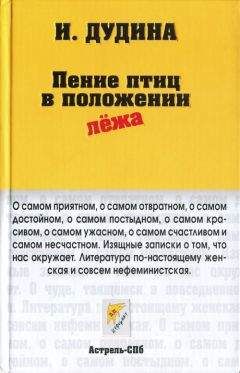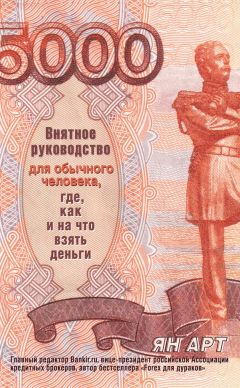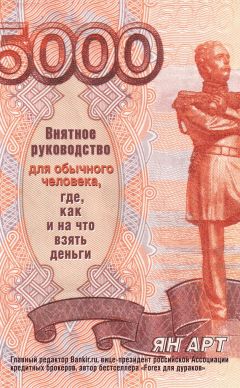Уильям Дэбарс - Модель Нового американского университета
181
Mortenson Th.G. et al. Why College? Private Correlates of Educational Attainment // Postsecondary Education Opportunity: The Mortenson Research Seminar on Public Policy Analysis of Opportunity for Postsecondary Education. 1999. Vol. 81. March.
182
Moretti Е. Estimating the Social Return to Higher Education: Evidence from Longitudinal and Repeated Cross-Sectional Data//Journal of Econometrics. 2004. Vol. 121. P. 175–212. Согласно расчетам Моретти, все работники из местного занятого населения извлекли пользу из роста пропорции обладателей дипломов бакалавра. Он сообщает, что «рост на один процентный пункт в предложении выпускников колледжа приводит к повышению зарплат бросивших учебу в средней школе на 1,9 %, зарплат выпускников школ на 1,6 %, а выпускников колледжа – на 0,4 %» (Р. 175).
183
Brooks D. Education Gap.
184
Carnevale А.Р., Smith N., Strohl J. HelpWanted. P. 13: «K 2018 г. экономика позволит создать 46,8 миллионов вакансий – 13,8 миллионов новых рабочих мест и 33 миллионов “временных рабочих мест”, – освобожденными работниками, либо ушедшими на пенсию, либо оставившими занимаемую должность». См. также: Kamenetz A. Dropouts: College’s 37-Million-Person Crisis – And How to Solve It // Atlantic. 2012. December 5.
185
Rising Above the Gathering Storm… P. 13. В этом и ряде других недавних отчетов исследуется проблема падения уровня жизни в США вследствие недостаточных вложений в образовательную инфраструктуру.
186
Geiger R.L. То Advance Knowledge. Р. 2–3.
187
Предшествующие дискуссии о модели Нового американского университета см., например, в работе: Crow М.М. Research University as Comprehensive Knowledge Enterprise…
188
Katz D., Kahn R.L. The Social Psychology of Organizations. N.Y.: Wiley, 1966.
189
Menand L. Market Place of Ideas… P. 13.
190
Более свежую дискуссию по поводу этого понятия см., например, в работе: Holland J. Complex Adaptive Systems // Daedalus. 1992. Vol. 121. No. l.P. 17–30.
191
DiMaggio P.J., Powell W.W. The Iron Cage Revisited: Institutional Isomorphism and Collective Rationality in Organizational Fields // American Sociological Review. 1983. Vol. 48. No. 2. P. 147–160.
192
<https://college.harvard.edu/about>.
193
В гл. 2 вошли исправленные и расширенные фрагменты нашей книги: Crow М.М., Dabars W.B. University-Based Research and Economic Development: The Morrill Act and the Emergence of the American Research University // Precipice or Crossroads: Where America’s Great Public Universities Stand and Where They Are Going Midway through Their Second Century / ed. by D.M. Fogel. Albany: State University of New York Press, 2012. P. 119–158.
194
Подробнее об интеллектуальной среде Балтимора в ту эпоху см.: Menand L The Metaphysical Club: A Story of Ideas in America. N.Y.: Farrar, Straus and Giroux, 2001. P. 255–284.
195
Shils E. The Order of Learning in the United States: The Ascendency of the University//The Organization of Knowledge in Modern America, 1860–1920/ ed. by A. Oleson, J. Voss. Baltimore: Johns Hopkins University Press, 1979. P. 28–29; Geiger R.L. To Advance Knowledge: The Growth of American Research Universities, 1900–1940. Oxford: Oxford University Press, 1986. P. 7.
196
Geiger R.L Milking the Sacred Cow: Research and the Quest for Useful Knowledge in the American University since 1920 // Science, Technology, and Human Values. 1988. Vol. 13. No. 3. P. 332.
197
Ibid. P. 333–334.
198
Keohane N.O. The American Campus: From Colonial Seminary to Global Multiversity//The Idea of a University/ed. by D.C. Smith, A.K. Langslow. L.: J. Kingsley Publishers, 1999. P. 5.
199
Kerr C. The Uses of the University. 5th ed. Cambridge, MA: Harvard University Press, 2001. P. 10–11.
200
Университетский колледж Лондона и Королевский колледж Лондона, основанные соответственно в 1826 и 1829 г., были объединены в 1836 г., образовав Лондонский университет. История их объединения описана в работе: Rothblatt S. Historical and Comparative Remarks on the Federal Principle in Higher Education // History of Education. 1987. Vol. 16. No. 3. P. 151–180. Хотя в Англии до XIX в., безусловно, были и другие колледжи и университеты, право присуждать ученые степени даровалось лишь королевским указом; именно на этом основании Лондонский университет претендует на статус третьего старейшего университета в стране. «Федеративный» Лондонский университет объединяет сегодня 19 учебных заведений: от Университетского колледжа Лондона и Королевского колледжа Лондона до Лондонской школы экономики, Лондонской школы гигиены и тропической медицины, Школы исследований стран Востока и Африки и Королевской музыкальной академии. Подробнее об объединенном Лондонском университете см.: Harte N. The University of London, 1836–1986. L.: Athlone Press, 1986.
201
Cole J.R. The Great American University: Its Rise to Preeminence, Its Indispensable National Role, and Why It Must Be Protected. N.Y.: Public Affairs, 2009. P.18.
202
Cohen A.M. The Shaping of American Higher Education: Emergence and the Growth of the Contemporary System. 2nd ed. San Francisco: Jossey-Bass, 2010. P.70.
203
Clark W. Academic Charisma and the Origins of the Research University. Chicago: University of Chicago Press, 2006. P. 28 (рус. пер.: Кларк У. Академическая харизма и истоки исследовательского университета. М.: Изд. дом ВШЭ, 2017).
204
Kerr С. Uses of the University. P. 1.
205
Readings B. The University in Ruins. Cambridge, MA: Harvard University Press, 1996. P. 62 (рус. пер.: Ридингс Б. Университет в руинах. М:. Изд. дом ГУ ВШЭ, 2010. С. 103).
206
Gray Н.Н. Searching for Utopia: Universities and Their Histories. Berkeley: University of California Press, 2012. P. 39–40.
207
Newman J.H. The Idea of a University. Notre Dame: University of Notre Dame Press, 1982. P. xxxvii (репринт так называемого академического издания, выпущенный издательством Longmans, Green, and Company в 1873 г.).
208
Cole J.R. Great American University. P. 17.
209
Rhodes F.H.T. The Creation of the Future: The Role of the American University. Ithaca, N.Y.: Cornell University Press, 2001. P. 43.
210
Menand L. The Metaphysical Club. P. 256; Shaffer E.S. Romantic Philosophy and the Organization of the Disciplines: The Founding of the Humboldt University of Berlin // Romanticism and the Sciences / ed. by A. Cunningham, N. Jardine. Cambridge: Cambridge University Press, 1990. P. 38.
211
Gray H.H. Searching for Utopia. P. 40–41.
212
Shaffer E.S. Romantic Philosophy and the Organization of the Disciplines. P. 38–43.
213
Bleicher J. Bildung//Theory, Culture, and Society. 2006. Vol. 23. P. 364–365.
214
Shaffer E.S. Romantic Philosophy and the Organization of the Disciplines. P. 38–39.
215
Peck J.M. Berlin and Constance: Two Models of Reform and Their Hermeneutic and Pedagogical Relevance // German Quarterly. 1987. Vol. 60. No. 3. P. 392.
216
В 1949 г. Берлинский университет был переименован в Университет Гумбольдта в знак признания заслуг Вильгельма фон Гумбольдта и его брата, натуралиста Александра фон Гумбольдта. Согласно Митчеллу Дж. Эшу, поскольку имя Гумбольдта ассоциируется с академическими идеалами, ссылка на него отчасти объяснялась позицией профессуры, утверждавшей в Германской демократической республике ценности «социалистического гуманизма». См.: Ash M.G. Bachelor of What, Master of Whom? The Humboldt Myth and Historical Transformations of Higher Education in German-Speaking Europe and the United States // European Journal of Education. 2006. Vol. 41. No. 2. P. 253.
217
Kerr C. Uses of the University. P. 8–9.
218
Kerr C. Higher Education Cannot Escape History: Issues for the Twenty First Century. Albany: SUNY Press, 1994; цит. no: Albritton F. Humboldt’s Unit Research and Teaching: Influence on the Philosophy and Development of U.S. Higher Education. 2006. <http://dx.doi.org/10.2139/ssrn.939811>.
219
Shaffer E.S. Romantic Philosophy and the Organization of the Disciplines. P. 38–39.
220
McClelland Ch.E. State, Society, and University in Germany, 1700–1914. Cambridge: Cambridge University Press, 1980. P. 105.
221
Обсуждались административные проблемы и новые идеи о полезности знаний, выдвигавшиеся Шеллингом и его окружением. Реформа подразумевала необходимость концептуального переосмысления университета: ему предстояло интегрировать то, что Шаффер называет «романтической идеалистической концепцией знания и отношений между дисциплинами». Шеллинг рассчитывал, что практическое устройство нового университета в Берлине будет определяться «безусловным единством знаний». В своих лекциях он прозорливо утверждал, что подобный органический подход должен задавать «фактическую структуру наших университетов, чтобы распространенная традиция специализации вновь оказалась подчинена единству целого». См.: Shaffer E.S. Romantic Philosophy and the Organization of the Disciplines. P. 41.
222
Shaffer E.S. Romantic Philosophy and the Organization of the Disciplines. P. 41–48. Шаффер цитирует работу: SchellingF.W.J. Lectures on the Method of Academic Studies. Athens, OH, 1966.
223
Shaffer E.S. Romantic Philosophy and the Organization of the Disciplines. P. 41–48.
224
McClelland Ch.E. State, Society, and University in Germany. P. 2, 122–124.
225
Liedman S.E. General Education in Germany and Sweden // The European and American University since 1800: Historical and Sociological Essays / ed. by Sh. Rothblatt, B. Wittrock. Cambridge: Cambridge University Press, 1993. P.82, 123–124.
226
Ash M.G. Bachelor of What, Master of Whom? P. 245–253. См. также: Anderson R.D. Before and after Humboldt: European Universities between the Eighteenth and Nineteenth Centuries // History of Higher Education Annual. 2000. Vol. 20. P. 5–14.
227
Swoboda W.W. Disciplines and Interdisciplinarity: A Historical Perspective // Interdisciplinarity and Higher Education / ed. by J.J. Kockelmans. University Park: Pennsylvania State University Press, 1979. P. 56–59. Вольфрам Свобода утверждает, что до появления новых вузов, созданных специально для получения новых знаний, исследования считались «факультативными».




